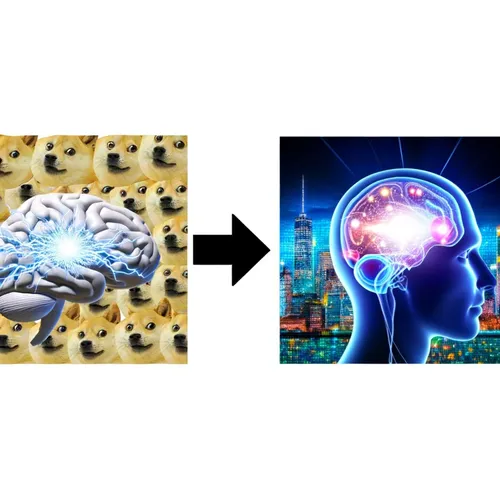DOGE Thinking Revolutionizes Government Efficiency Saving Billions and Transforming Federal Spending Accountability
- Author
- Quiet. Please
- Published
- Sat 19 Apr 2025
- Episode Link
- https://www.spreaker.com/episode/doge-thinking-revolutionizes-government-efficiency-saving-billions-and-transforming-federal-spending-accountability--65635984
Listeners, today’s government landscape is being shaped by a movement that goes far beyond internet meme culture: “DOGE Thinking” is now official government policy, with measurable impacts on federal efficiency and spending. On January 20, 2025, the Department of Government Efficiency—abbreviated DOGE—was created by executive order, aiming to modernize federal technology, slash bureaucratic waste, and make agencies more responsive to presidential direction. The transformation includes the renaming of the U.S. Digital Service to the U.S. DOGE Service, reflecting this new philosophy[1][2].
The results are already compelling. The IRS has reportedly saved $2 billion by cutting wasteful contracts, including unused auto-renewing licenses[3]. The Department of Energy introduced a policy capping university grant overheads at 15%, matching rates applied to other sectors. This single step is projected to save taxpayers over $400 million annually—money now redirected from administrative bloat to direct research and innovation[3]. Furthermore, federal agencies terminated 239 unnecessary contracts over just two days, leading to savings of around $400 million, such as an $8.5 million consulting contract deemed redundant[3].
Under the DOGE system, daily payments totaling over $700 million are now scrutinized through payment justifications—a just-in-time accountability mechanism asking, “What is this?” for every major expenditure[3]. This approach has enhanced transparency and forced agencies to defend each spend, reducing the potential for misuse.
While the public may associate DOGE with playful internet culture, policymakers like Vice President JD Vance stress that the goal isn’t just dollar savings but increased government responsiveness and alignment with elected leadership[1]. Critics point out that the drive for efficiency often serves deeper ideological objectives, such as implementing the unitary executive theory and reducing the size and autonomy of targeted agencies[1].
Recent executive orders have accelerated these changes, mandating comprehensive reviews of contracts and payment processes across the federal government. Some agencies, like law enforcement and defense, remain exempt, but the overall drive for transparency and efficiency is unmistakable[5].
Beyond the meme, DOGE Thinking is reshaping how the federal government works, with real consequences for agency accountability, taxpayer savings, and the balance of power in Washington.
